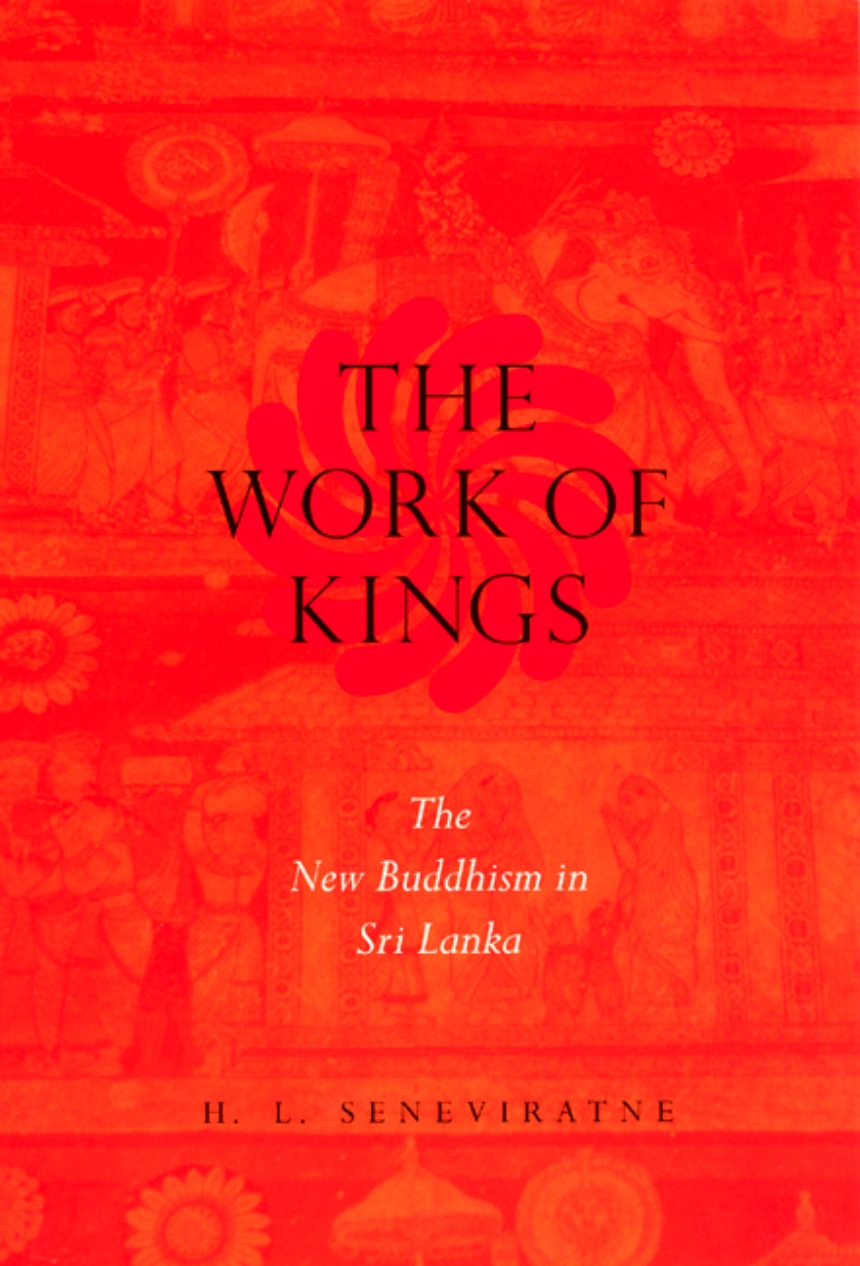The Work of Kings
The Work of Kings is a stunning new look at the turbulent modern history and sociology of the Sri Lankan Buddhist Monkhood and its effects upon contemporary society. Using never-before translated Sinhalese documents and extensive interviews with monks, Sri Lankan anthropologist H.L. Seneviratne unravels the inner workings of this New Buddhism and the ideology on which it is based.
Beginning with Anagarika Dharmapala’s "rationalization" of Buddhism in the early twentieth century, which called for monks to take on a more activist role in the community, Seneviratne shows how the monks have gradually revised their role to include involvement in political and economic spheres. The altruistic, morally pure monks of Dharamapala’s dreams have become, Seneviratne trenchantly argues, self-centered and arrogant, concealing self-aggrandizement behind a façade of "social service."
A compelling call for reform and a forceful analysis, The Work of Kings is essential to anthropologists, historians of religion, and those interested in colonialism, nationalism, and postcolonial politics.
Beginning with Anagarika Dharmapala’s "rationalization" of Buddhism in the early twentieth century, which called for monks to take on a more activist role in the community, Seneviratne shows how the monks have gradually revised their role to include involvement in political and economic spheres. The altruistic, morally pure monks of Dharamapala’s dreams have become, Seneviratne trenchantly argues, self-centered and arrogant, concealing self-aggrandizement behind a façade of "social service."
A compelling call for reform and a forceful analysis, The Work of Kings is essential to anthropologists, historians of religion, and those interested in colonialism, nationalism, and postcolonial politics.
392 pages | 6 x 9 | © 2000
Anthropology: Cultural and Social Anthropology
Asian Studies: South Asia
Religion: Religion and Society
Table of Contents
Preface
Note on Usage
1: Buddhism, Civil Society, and the Present Study
2: Dharmapala and the Definition of the Monk’s Mission
3: The Economic Stage: Vidyodaya and Rural Development
4: Vidyalankara: The Descent into Ideology
5: Social Service: The Anatomy of a Vocation
6: The Critique of Monkhood
7: Conclusion: From Regeneration to Degeneration
Index
Note on Usage
1: Buddhism, Civil Society, and the Present Study
2: Dharmapala and the Definition of the Monk’s Mission
3: The Economic Stage: Vidyodaya and Rural Development
4: Vidyalankara: The Descent into Ideology
5: Social Service: The Anatomy of a Vocation
6: The Critique of Monkhood
7: Conclusion: From Regeneration to Degeneration
Index
